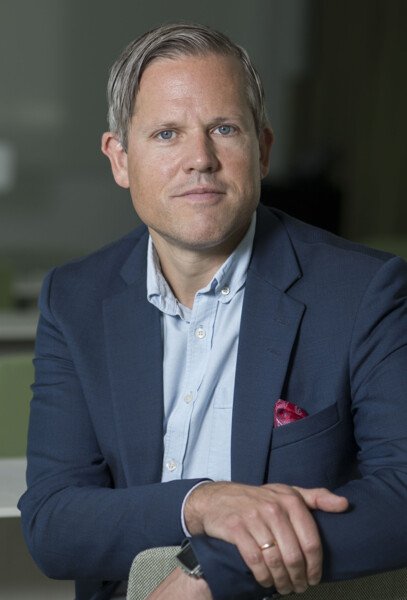Assessing the risk and treating resistant bacteria
Many people carry resistant bacteria in their gut, but relatively few get sick. Christian Giske is conducting research into the reason for this – who is at risk of becoming ill and how can the refractory bacteria be attacked?

What are you researching?
“We are doing research on antibiotic resistance, in particular resistant bacteria in the gut. Five percent of the population are carriers of such bacteria – most people do not have any symptoms, but in a small percentage of individuals they cause serious disease: sepsis. One main focus of our research is about mapping risk factors to explain why the bacteria sometimes cause disease, as well as understanding why some people get sick while others do not. We combine data from a variety of sources: patient data, register data, genetic analysis of individual bacteria, and the entire intestinal microbiota. Our hope is that this knowledge will be used clinically to identify patients early on who are at a high risk of severe infections with resistant bacteria.”
And the second focus?
“That is to develop new treatments, based on bacteriophages, against these resistant bacteria. Bacteriophages are viruses that attack bacteria. We are interested in both naturally occurring and synthetic bacteriophages. The advantage of the synthetic ones is that they can be adapted to become very specific. Our objective is to eliminate the resistant bacterial strains in the gut, not all bacteria of a certain type.
We also conduct research into other aspects of treating resistant bacteria. Among other things, we are participating in a European collaboration that aims to develop a faster method for testing combinations of antibiotics against refractory bacteria.”
How far have you gotten?
“Our research on bacteriophages is at an early stage – we are now preparing an experimental study in collaboration with research groups abroad. Our study into risk factors for sepsis has been underway for a longer period of time and has already yielded results. The risk level in individual cases is affected in part by the bacteria’s genetic characteristics and in part by factors in the patient. Among other things, urinary tract diseases, such as prostate changes, have been identified as significant risks.”
Text: Anders Nilsson, first published in the booklet 'From Cell to Society 2018'
About Christian Giske
Professor of Clinical Bacteriology at the Department of Laboratory Medicine
Christian Giske was born in 1975 in Ålesund, Norway. He did his medical training at the Norwegian University of Science and Technology in Trondheim, graduating in 2000. In 2002 he completed his military service as an officer and physician in the Norwegian navy. He has been working at the Karolinska University Laboratory at Karolinska University Hospital since 2002, where he is currently a senior consultant in clinical bacteriology.
Giske became a specialist of clinical microbiology in 2007 and earned his PhD at Karolinska Institutet that same year with a dissertation on the antibiotic resistance of the bacterium Pseudomonas aeruginosa. He became an associate professor in 2010. Christian Giske was appointed Professor of Clinical Bacteriology at Karolinska Institutet on 1 June 2018.
